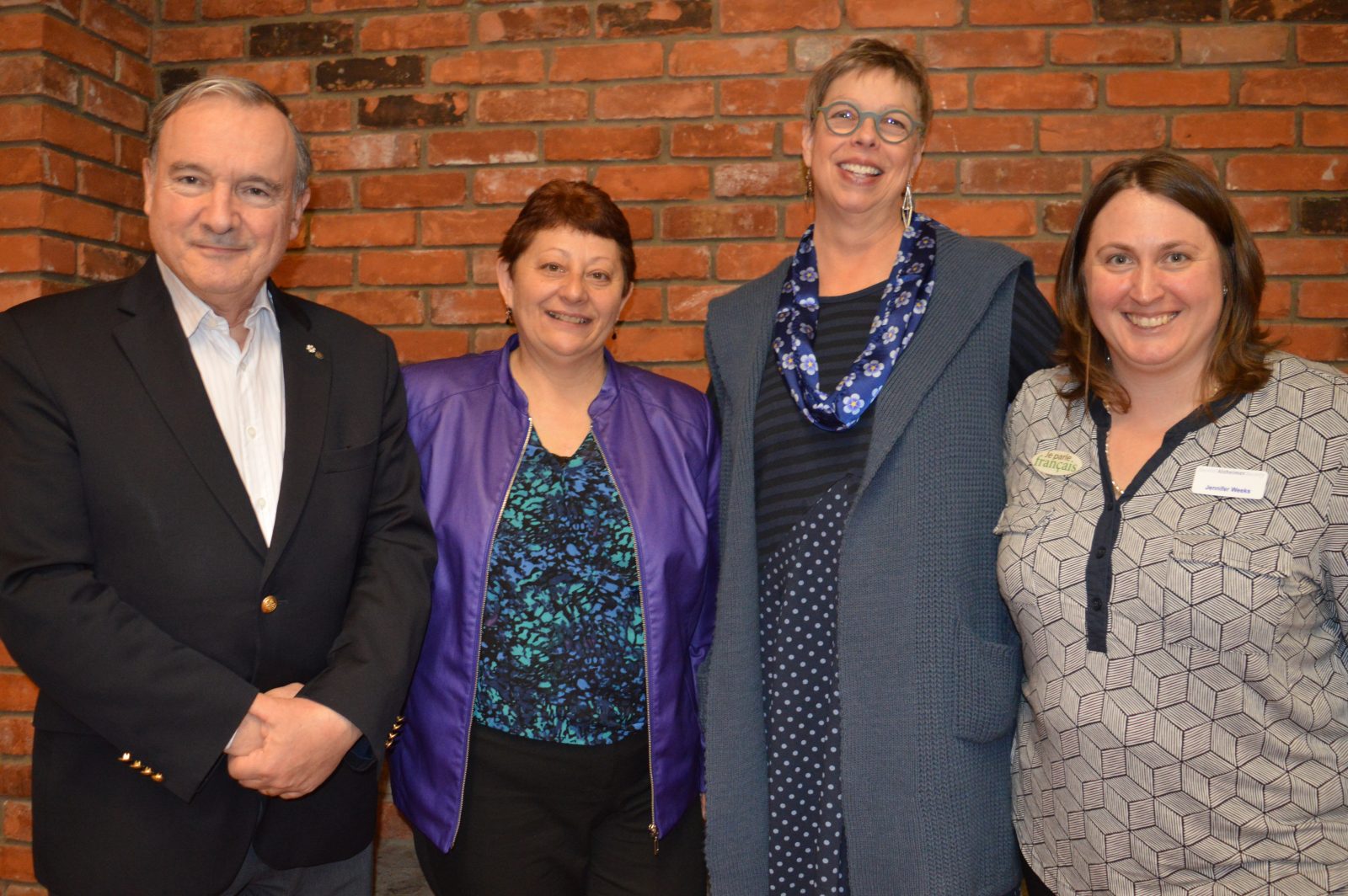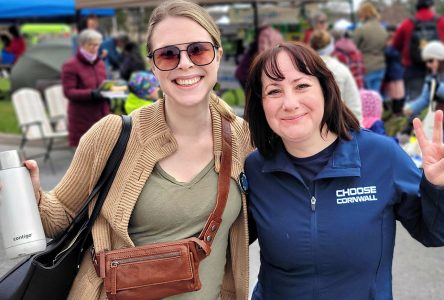CORNWALL, Ontario – Caregivers, individuals living with dementia and community organizations supporting those individuals were invited to attend the Dementia Care Conference on Thursday, March 28, hosted by the Alzheimer Society of Cornwall & District at Ramada by Wyndham Cornwall.
“Across Canada right now, over 500,000 people are (living with) dementia, and that number is expected to almost double in the next 15 years. Throughout Stormont, Dundas, Glengarry, Prescott and Russel, the area we service…there are over 3,600 people who are diagnosed with dementia,” said Jennifer Weeks, Alzheimer Society Communications and Campaign Coordinator.
The annual conference saw a full attendance of about 120 participants. Early bird tickets could be purchased for $75 or regular for $100. Weeks said that staff was thrilled with the turnout and were able to reserve tickets for a few people in the society’s programs.
“We need for people to be prepared, we need for people to understand the disease better, we need for people to know what community supports are available to them, we need for people to understand it is a progressive disease and there are also different stages…we also need for people to understand how to access help and support,” said Weeks, reflecting on the estimated diagnosis increase.
The conference featured two main speakers, including Mary Harvey of Improv Yourself, who focused her talk on positive thinking, empowerment and communication skills.
“It’s (discussing and implementing) being present and being open to conversations, not necessarily going in a straight line, and how you can stay connected to one another; have conversation, share interaction, spend time. We also talked about ‘what do you look for in your day?’ If you look for joy in what is possible, rather than going into our day looking for what is going to go wrong…learning to communicate in a more open way, thinking a bit differently, thinking more flexible,” said Harvey.
Dr. Serge Gauthier, Director of the Alzheimer’s Disease Research Unit at McGill Centre for Studies in Aging, also spoke to participants about the current state of research, what occurs with the disease, the current status of treatments and answered any questions geared to specific types of dementia.
“My presentation (was) about the diagnosis and management of dementia,” said Dr. Gauthier. “I…put emphasis on the role of the caregiver throughout the process…we (reviewed) prevention strategies because caregivers often worry for themselves later, especially daughters, having the dementia that is in the family…so it is important to give hope for people who care for others with dementia about what they’re doing now…but also give them hope for the future.”
Weeks explained that an Alzheimer Society Education Coordinator hosts information sessions for different organizations throughout the region and believes that approx. 2,000 individuals were trained in the last year, participating in a three hour workshop to better understand how to make their business, organization or faith community more friendly to people living with dementia. A practical strategy may be as simple as changing lighting said Weeks, as some individuals with dementia may struggle with vision. To schedule a time or learn more about these information sessions, call the local Society at 613-932-4914.
Weeks also said that staff are looking for teams, individuals and anyone who is interested in supporting and raising money for the Society to participate in the upcoming IG Wealth Management Walk for Alzhiemers on May 4.
“The Alzheimer Society across canada has a very powerful role in translating the research into practice. They’re also in touch daily with caregiver needs, so the people in academia and research need this important feedback from the Alzheimer Society about what are caregiver needs. We need to adjust government research and interventions based on those needs,” said Dr. Gauthier.




